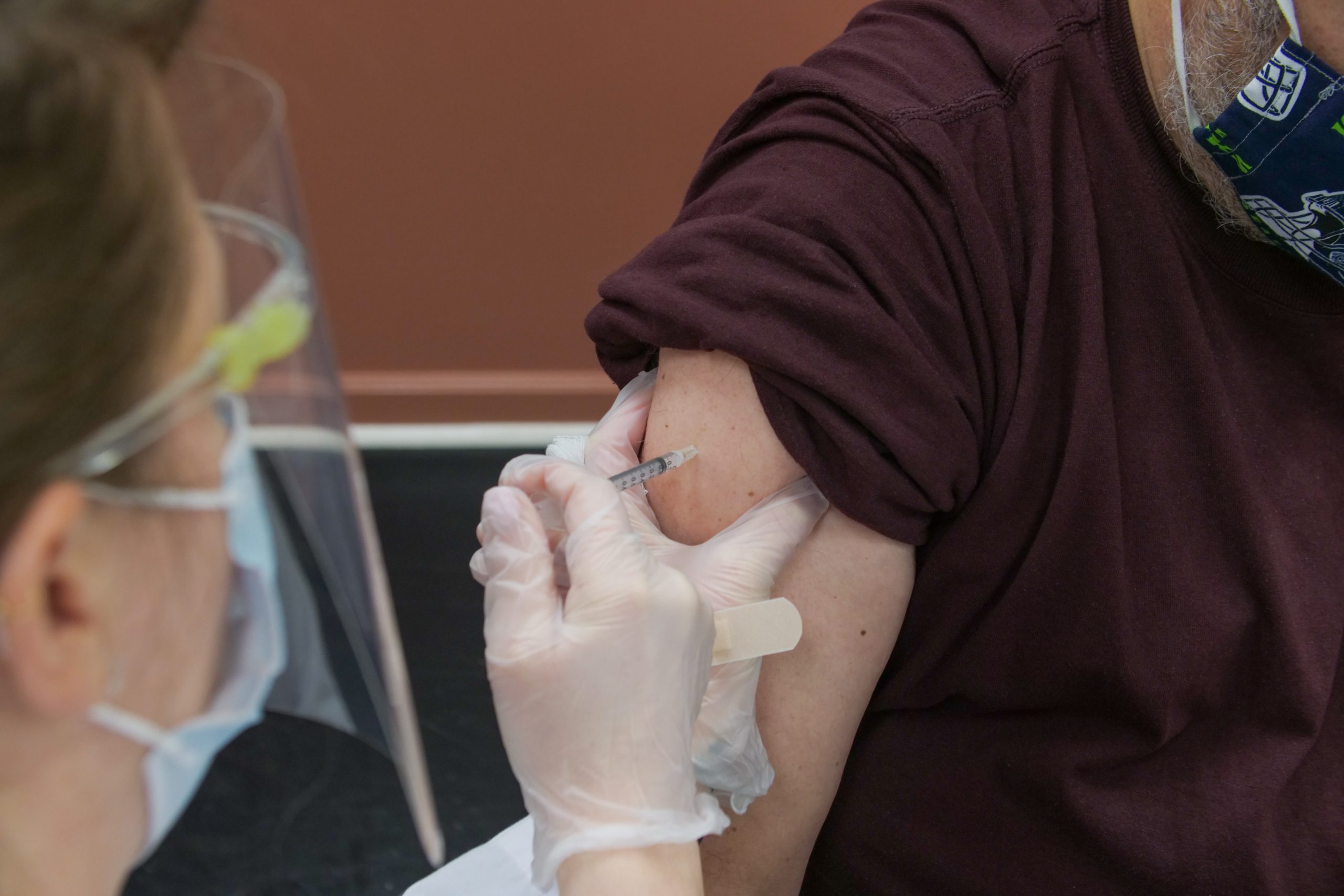June 4, 2021

The Pfizer and Moderna vaccines were the first Covid-19 vaccines to be approved by the FDA, and are given in 2 doses. The Johnson & Johnson vaccine recently received approval by the FDA, but only requires one dose.
Why is it that some Covid vaccines need to be given in 2 doses, but others only 1? Because they are different types of vaccines.
mRNA Vaccines Provide Maximum Protection Against Infection After Two Doses
The Pfizer and Moderna vaccines are a type of vaccine called a messenger RNA or mRNA vaccine. mRNA vaccines have only come on the market recently, but scientists have been developing and studying them for decades.
Messenger RNA is genetic material that acts as a set of instructions for your cells for how to make proteins. If you get the Pfizer or Moderna vaccine, it tells your body how to make a harmless type of protein (called a “spike protein”) that is found on the surface of the Covid virus.
The body’s immune cells recognize this spike protein as something that came from outside the body, and they begin producing antibodies in an attempt to destroy it. The result is that your body is now producing antibodies to the Covid-19 virus, even though you’re not infected with the virus. These antibodies protect you from getting infected in the future, even if you’re exposed to Covid.
Just like other vaccines, the Pfizer and Moderna vaccines do not contain the actual virus that causes Covid-19, which means that receiving these vaccines cannot possibly make you sick with Covid-19.
If you’re getting either the Pfizer or Moderna vaccine, you’ll need two doses. The first shot helps the body develop an initial immune response, but won’t provide full protection. The second shot, which is called a “booster,” is given a few weeks after the first and strengthens the body’s immune response.
The Johnson & Johnson Adenovirus Vaccine is Effective After Just One Dose
The type of vaccine Johnson & Johnson developed is called a viral vector vaccine. A vector is a vessel — in this case, a harmless version of a virus that is not the Covid-19 virus — used to carry DNA material.
The Johnson & Johnson vaccine uses a vector to carry DNA into human cells and tell the body how to make the harmless spike protein found on the surface of the Covid-19 virus. Just like with the mRNA vaccine, the immune system identifies the spike protein as an invader and begins to make antibodies
Some people may have concerns as to whether a Covid-19 vaccine that only requires 1 shot is effective. Viral vector vaccines don’t require a second shot because these types of vaccines help the body initiate a strong immune response with just one dose.
Just like the Pfizer and Moderna vaccines, the Johnson & Johnson vaccine does not contain the Covid virus and cannot make you sick with Covid-19.
After Vaccination, Continue to Follow Guidelines Outlined by the CDC
After being vaccinated, remember to continue to follow the safety guidelines outlined by the CDC. Recently, the CDC announced that people who have been vaccinated can meet with other vaccinated people indoors without wearing a mask. However, the CDC still recommends that vaccinated individuals continue wearing a mask and social distancing in public spaces.
Sources: